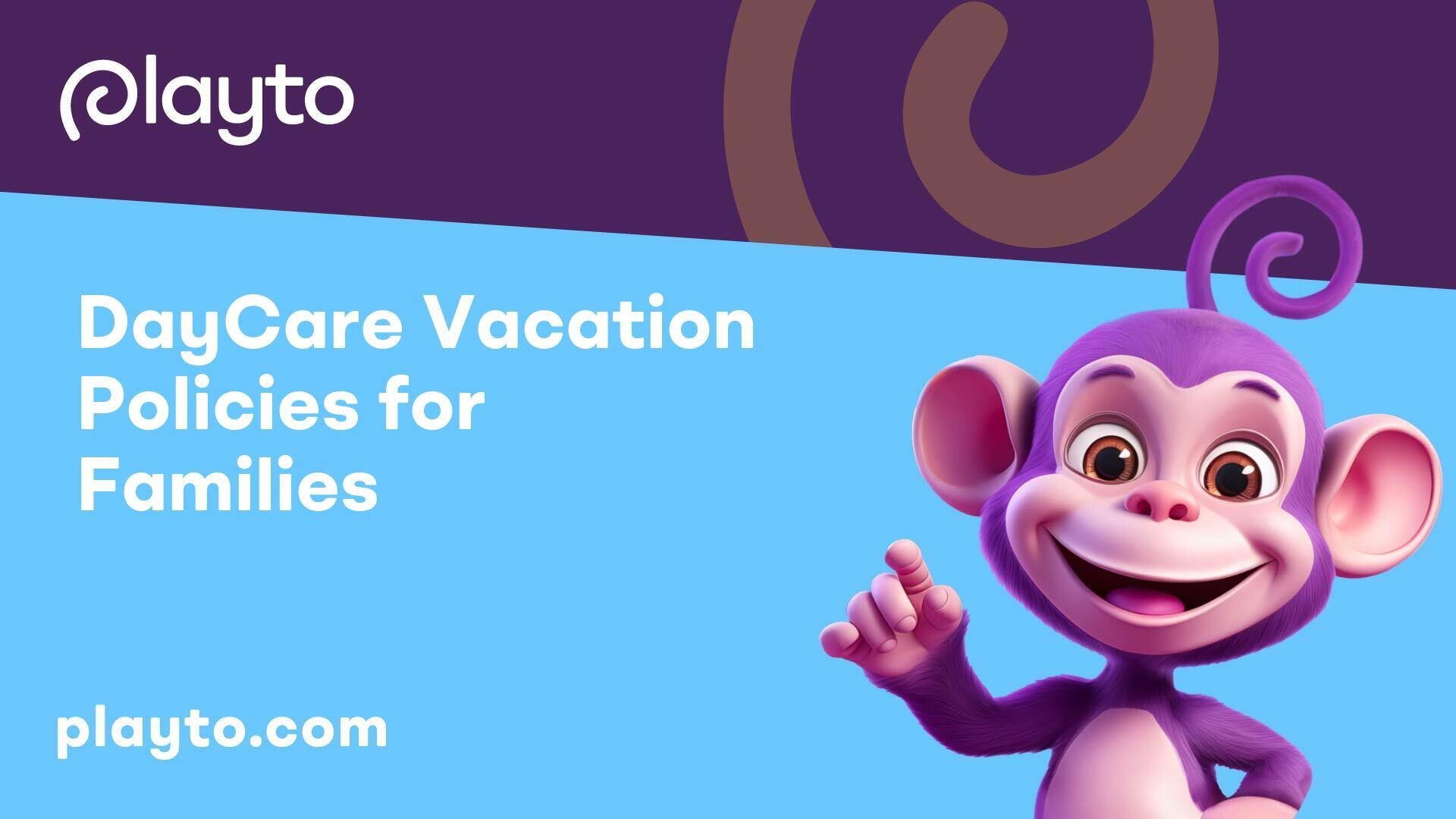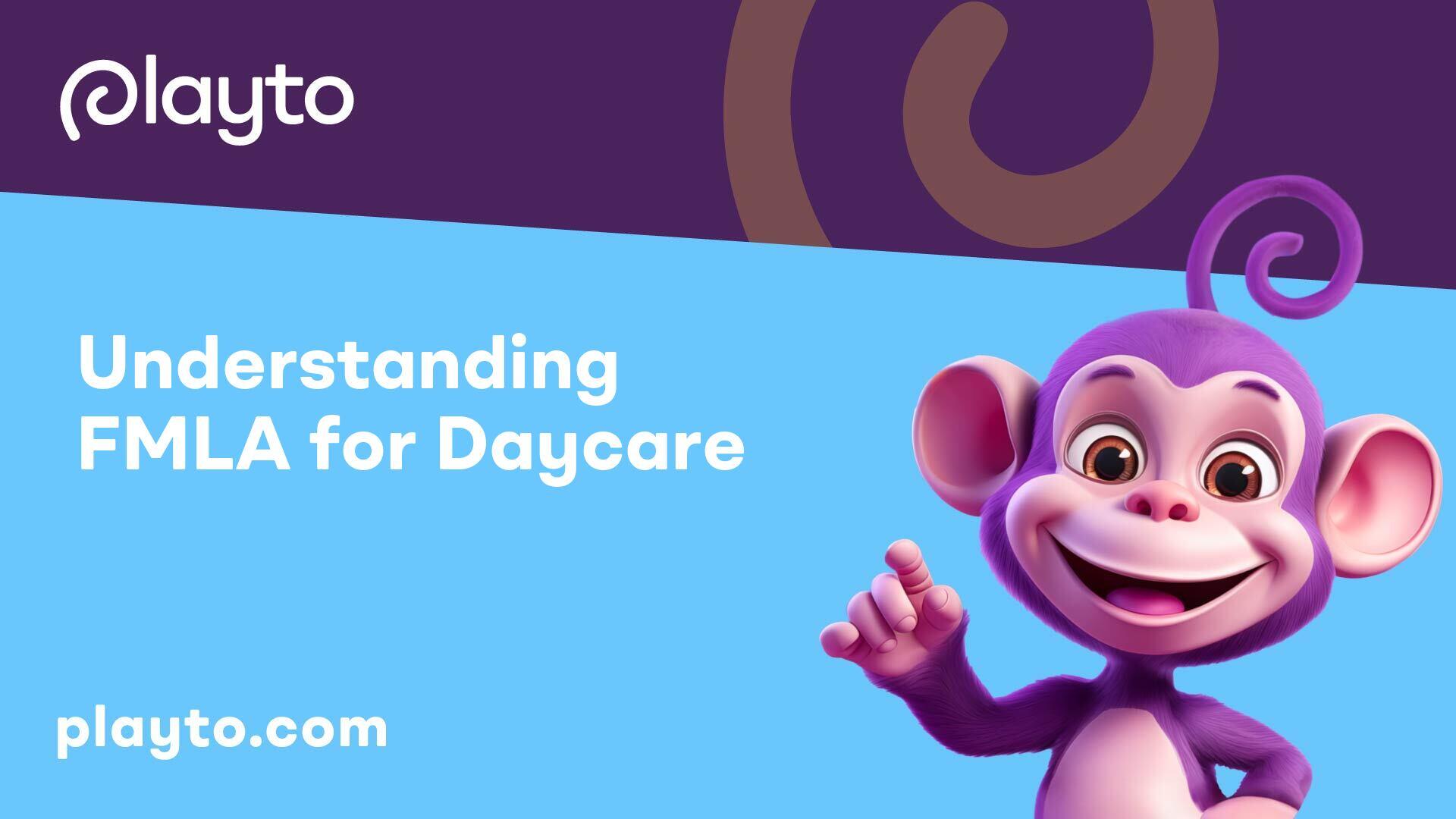
Understanding FMLA for Daycare
When it comes to Family and Medical Leave Act (FMLA) for daycare facilities, understanding the basics of FMLA and the qualifying reasons for FMLA leave is essential for both employees and employers.
Family and Medical Leave Act Basics
The FMLA mandates that FMLA-covered employers must allow eligible employees to take up to 12 workweeks of unpaid leave during any 12-month period for qualifying reasons. To be eligible for FMLA leave, employees must have worked a minimum of 1,250 hours over the previous 12 months and be employed at a location with at least 50 employees within a 75-mile radius.
Qualifying Reasons for FMLA
When an employee requests FMLA leave, they must provide their employer with appropriate notice. It is important to communicate openly with your employer about the need for FMLA leave to ensure a smooth and compliant process. Your employer may have additional questions to determine whether FMLA applies to your situation.
Employees are not obligated to disclose specific details to their employers when requesting FMLA leave. However, it is advisable to provide enough information to demonstrate that the absence qualifies under the FMLA guidelines. For further guidance and resources regarding FMLA leave, employees and employers can refer to the Department of Labor.
Understanding the fundamental principles of FMLA and the qualifying reasons for FMLA leave is crucial in ensuring that daycare facilities adhere to legal requirements and that employees are aware of their rights when it comes to taking time off for family and medical reasons.
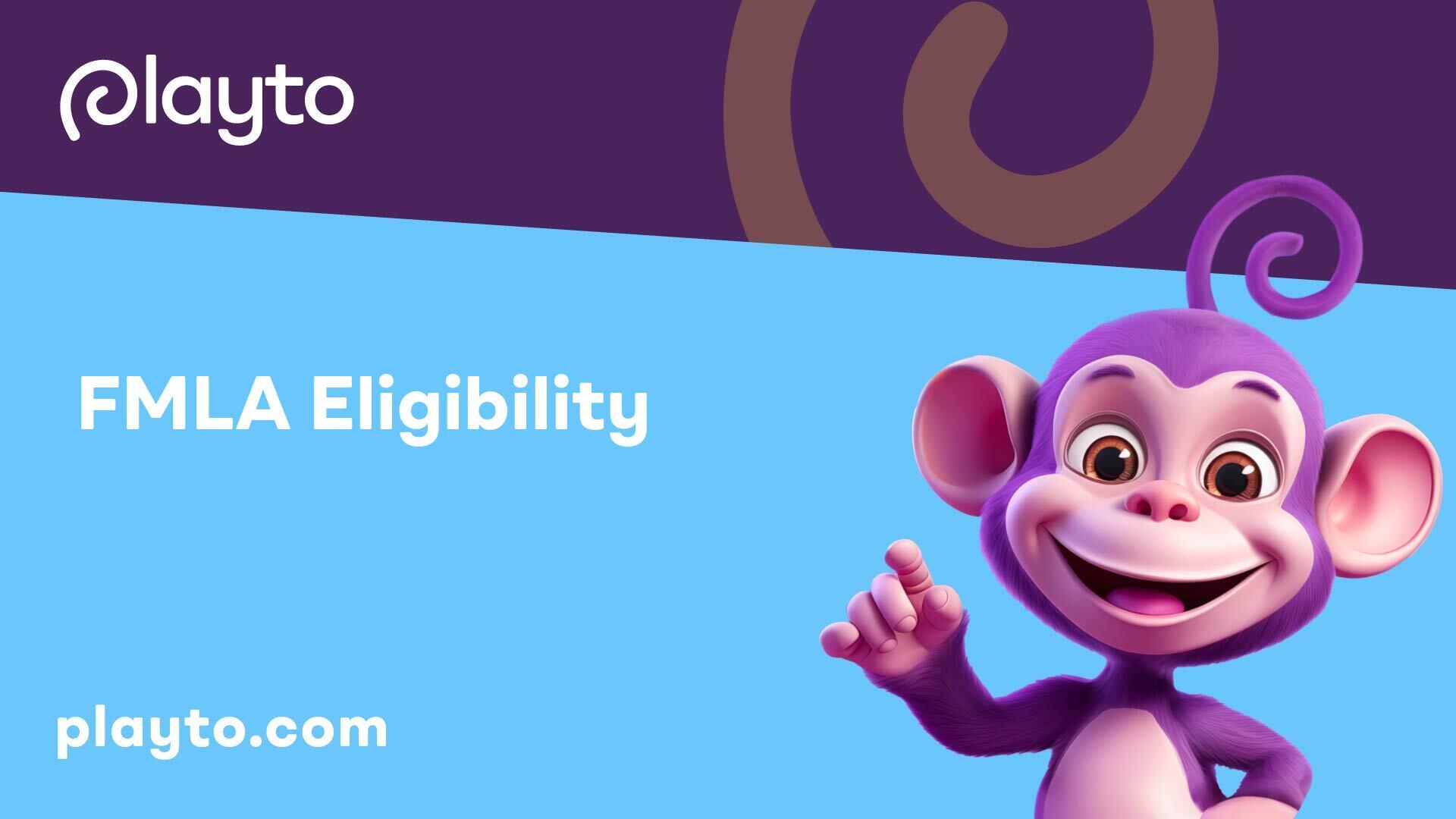
FMLA Eligibility
In the realm of daycare vacation policies for families, understanding the Family and Medical Leave Act (FMLA) is crucial to ensure that employees can balance their work responsibilities with family needs. Let's delve into the key aspects of FMLA eligibility, focusing on both the requirements for employees and the obligations for employers.
Employee Requirements
To be eligible for FMLA leave, employees must meet certain criteria outlined by the Department of Labor. The primary requirements include:
- The employee must have worked for their employer for at least 12 months.
- The employee should have worked a minimum of 1,250 hours over the previous 12-month period.
- The employee must work at a location where the employer employs at least 50 employees within a 75-mile radius.
By meeting these criteria, employees are entitled to take up to 12 workweeks of unpaid leave during any 12-month period for qualifying reasons under FMLA. It's essential for employees to provide their employer with appropriate notice when requesting FMLA leave, as detailed by the Department of Labor. Employees are not required to disclose private medical information to their employers when making their leave request.
Employer Obligations
Employers have specific obligations under FMLA to ensure compliance and support their employees' right to take leave for qualifying reasons. Key obligations for employers include:
- Providing eligible employees with up to 12 workweeks of unpaid leave during any 12-month period for qualifying reasons.
- Maintaining health benefits for employees on FMLA leave as if they were actively working.
- Restoring employees to their original or equivalent positions upon their return from FMLA leave.
- Adhering to FMLA regulations and requirements to protect employees' rights and benefits.
It is essential for employers to understand and adhere to FMLA regulations to facilitate a smooth process for employees seeking leave for family and medical reasons. By upholding these obligations, employers demonstrate their commitment to supporting their workforce and promoting a healthy work-life balance.
Navigating FMLA eligibility requirements is essential for both employees and employers to ensure a harmonious relationship that accommodates family needs while upholding workplace standards and regulations. By understanding and fulfilling the obligations and requirements associated with FMLA, both parties can work together to create a supportive and inclusive work environment.
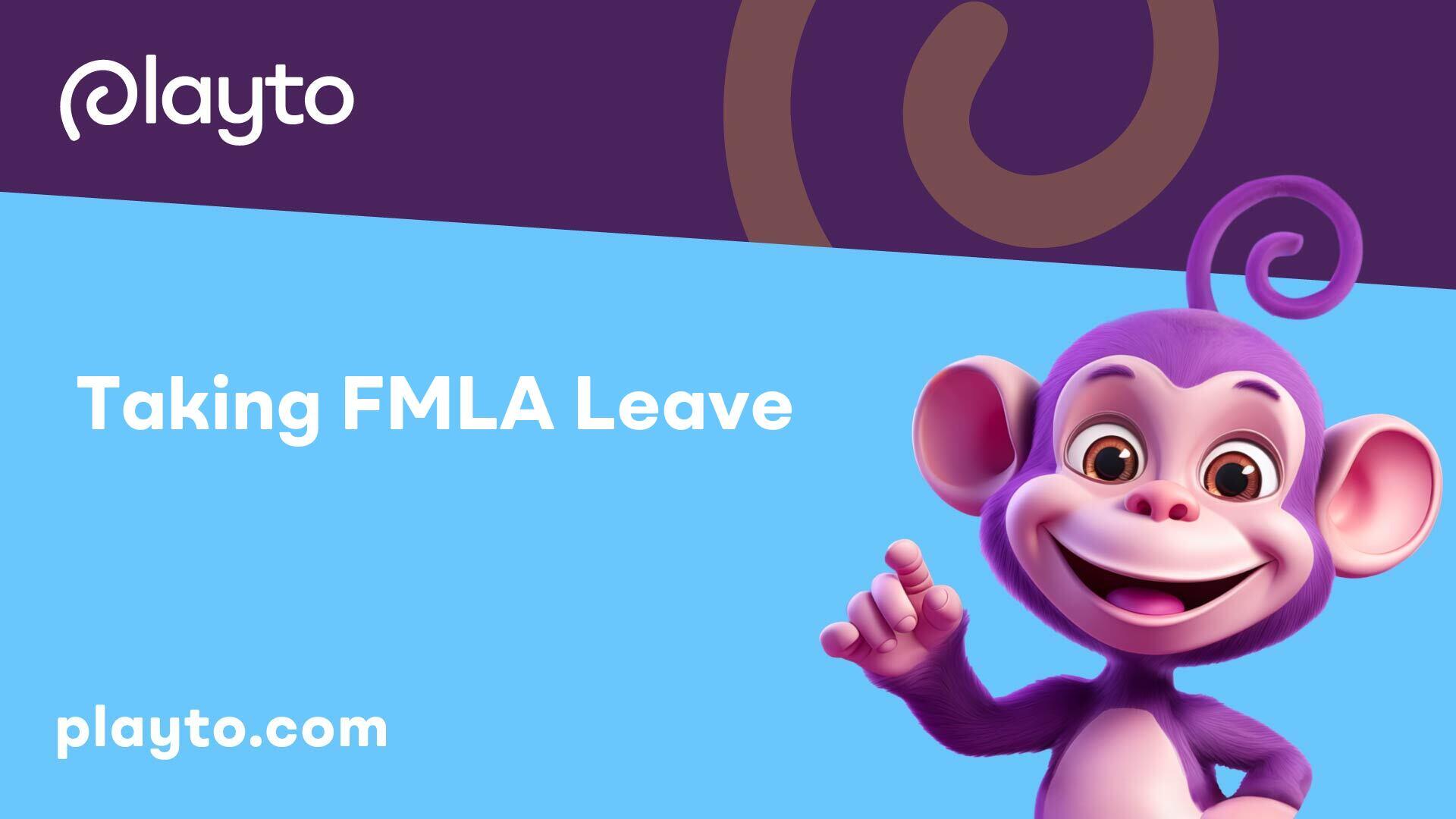
Taking FMLA Leave
When considering the need to take time off from work due to personal or family medical reasons, understanding the process of requesting and providing notice for Family and Medical Leave Act (FMLA) leave is crucial for both employees and employers.
Requesting FMLA Leave
The Family and Medical Leave Act (FMLA) allows eligible employees to take job-protected leave for qualified family and medical reasons, including serious health conditions. When an employee needs to request FMLA leave, they must follow certain steps:
- Inform their employer of the need for FMLA leave and specify the reasons for the leave.
- Provide the necessary medical certifications or documentation supporting the need for FMLA leave.
- Request FMLA leave within a reasonable timeframe before the leave is scheduled to begin.
Employers have the right to request additional information if there is uncertainty about whether FMLA applies to a particular situation. However, employees are not obligated to disclose certain details when requesting FMLA leave. Understanding and adhering to the procedural requirements for requesting leave can help ensure a smooth process for both parties.
Providing Required Notice
To take FMLA leave, employees must provide their employer with appropriate notice according to FMLA regulations. Required actions include:
- Notifying the employer of the need for leave as soon as practicable and providing the reason for the leave.
- Following the employer's specific policies and procedures for requesting and documenting FMLA leave.
- Furnishing any relevant medical documentation or certifications to support the need for FMLA leave.
By providing the necessary notice and documentation in a timely manner, employees can ensure that their FMLA leave request is processed efficiently and in compliance with legal requirements.
If there are concerns or questions regarding FMLA eligibility or the application of leave, the U.S. Department of Labor's Wage and Hour Division (WHD) is available to provide assistance and enforce FMLA regulations. Employees who believe their FMLA rights have been violated can contact WHD at 1-866-487-9243 for guidance and support. Remember, clear communication and adherence to FMLA guidelines are essential when navigating the process of requesting and providing notice for FMLA leave.

Traveling with Children
Planning a family vacation involves considerations beyond just packing bags—especially when ensuring smooth travels with children in tow. Here, we explore two crucial aspects: obtaining consent for out-of-state travel and understanding passport requirements for minors.
Consent for Out-of-State Travel
When traveling out of state with children, particularly after a divorce or separation, it is essential for parents to obtain consent from the child's other legal guardians. This helps ensure a smooth travel experience and compliance with legal requirements. Coordination with co-parents is crucial to obtain permission to travel out of state with a child, emphasizing the importance of effective communication and shared decision-making.
For parents with sole legal custody of children, the need for permission to travel out of state or abroad may vary. To avoid disruptions during travel, it is recommended to carry relevant documentation that affirms sole legal custody, such as a court decision or parenting plan.
Passport Requirements for Minors
When traveling abroad with children, parents must provide consent for children under the age of 16 to obtain a passport. The process may differ based on whether parents have joint legal custody or sole legal custody. It is crucial to understand and adhere to the specific requirements to facilitate the passport application process for minors.
Researching the destination’s passport requirements and documentation is important when traveling internationally with children. Different countries may have specific regulations regarding minors traveling, and failure to comply with these requirements can lead to travel disruptions or even prevent departure. To avoid such issues, thorough research and adherence to documentation guidelines are essential.
In summary, obtaining consent for out-of-state travel and understanding passport requirements are vital steps for parents planning trips with their children. By ensuring compliance with legal guidelines and documentation, families can enjoy hassle-free journeys and memorable vacations.
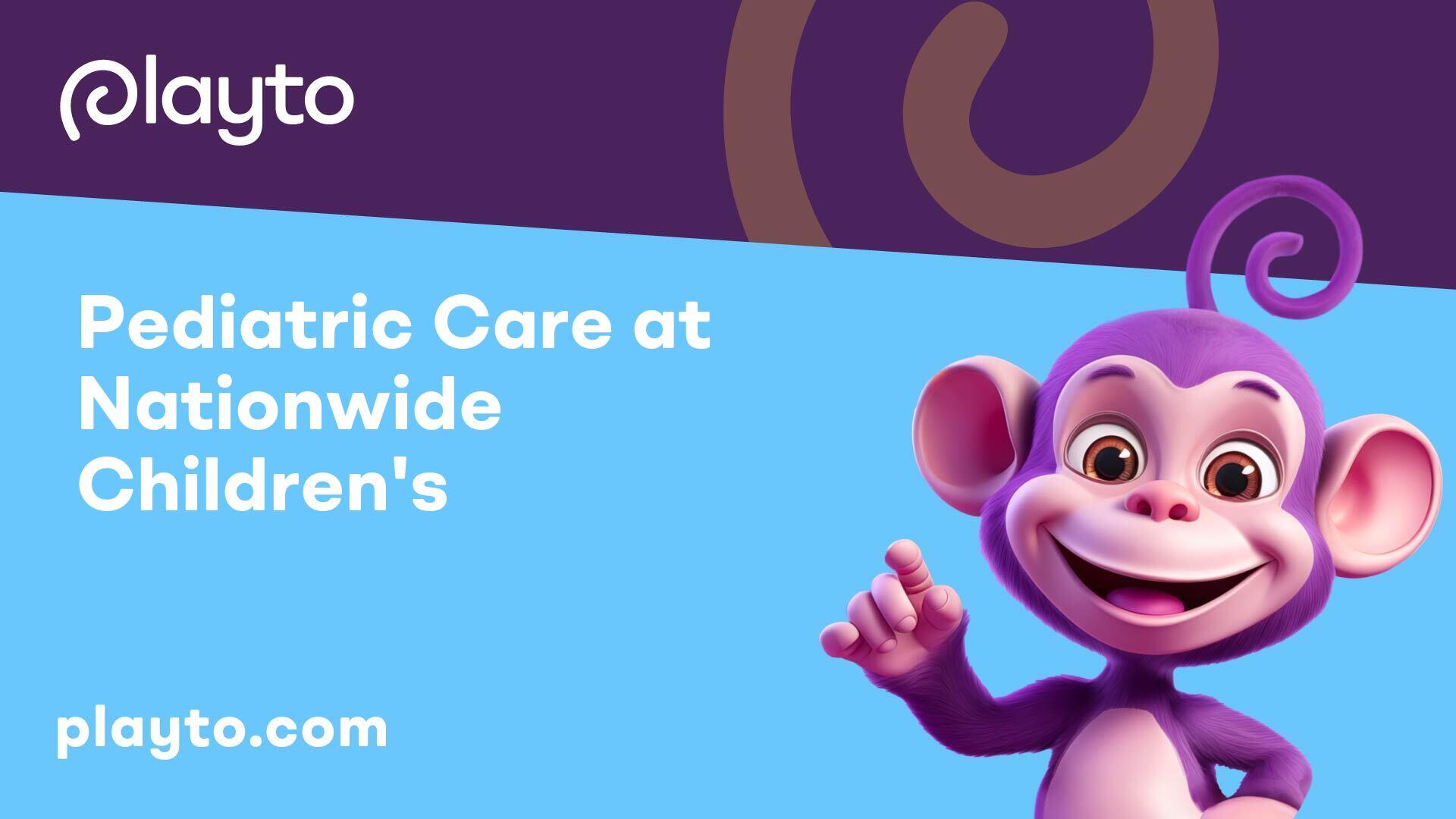
Pediatric Care at Nationwide Children's
When it comes to pediatric care, Nationwide Children's Hospital is a trusted institution renowned for its dedication to providing exceptional services to young patients and their families. Understanding the comprehensive range of services offered and the hospital's policies and updates is essential for parents seeking high-quality healthcare for their children.
Services Offered
Nationwide Children's Hospital boasts a wide array of services tailored to meet the unique healthcare needs of children. From primary care and preventive services to specialized care in various pediatric specialties, the hospital is equipped to address a diverse range of medical conditions and requirements. Some of the key services offered at Nationwide Children's include:
- Pediatric primary care
- Emergency services
- Specialized pediatric care in areas such as cardiology, oncology, neurology, and more
- Surgical services
- Diagnostic imaging
- Rehabilitation services
Parents can rest assured that their children will receive compassionate and expert care from a team of highly skilled healthcare professionals dedicated to pediatric medicine.
For families requiring assistance with international or out-of-area medical care, Nationwide Children's Global Patient Services team is available to provide support and guidance throughout the process [2].
Hospital Policies and Updates
Nationwide Children's Hospital prioritizes the safety and well-being of its young patients, especially during periods of increased health risks. Effective November 1st, the hospital has implemented visitor restrictions for inpatients to protect high-risk patients, particularly during the fall and winter virus season.
In light of rising cases of community-acquired pneumonia (CAP), awareness of infections affecting the lungs outside of hospital settings is crucial. Nationwide Children's Hospital remains vigilant in monitoring and addressing such health challenges to ensure the safety of all patients under its care.
Stay informed about the hospital's latest policies, updates, and important healthcare information to make well-informed decisions regarding your child's medical care. By proactively understanding the services offered and staying up-to-date on hospital guidelines, you can ensure that your child receives the best possible pediatric care at Nationwide Children's Hospital.
Legal Considerations for Parents
When it comes to planning vacations involving children, there are important legal considerations that parents need to be aware of to ensure smooth travels and compliance with regulations. Two key aspects to focus on are custody and travel consent, as well as the required documentation for hassle-free experiences.
Custody and Travel Consent
For parents traveling out of state with children post-divorce, obtaining consent from the child's other legal guardians is essential. Coordinating travel plans with co-parents and having permission to travel out of state with a child are crucial steps to avoid legal complications.
Custody orders or parenting plans may incorporate specific consent requirements for parental travel with children, whether domestically or abroad. Even in cases where not expressly outlined, obtaining written consent is recommended to prevent potential disputes in the future.
In situations where a parent holds sole legal custody, formal permission for out-of-state or international travel may not be mandatory. However, possessing relevant documentation, such as a court decree affirming sole legal custody, is advisable for seamless travel experiences and to mitigate any legal challenges along the way.
Documentation for Smooth Travels
When traveling abroad with a child, parents must provide consent for children under 16 to obtain a passport. Procedures for passport issuance may vary based on joint legal custody or sole legal custody arrangements. Hence, confirming the requirements and having the necessary paperwork in place well in advance is crucial to avoid any travel disruptions or impediments [1].
It's imperative for parents to research the specific documentation required by different countries when traveling abroad with children. Incomplete or inaccurate paperwork can lead to travel plan disruptions or even prevent travel altogether. Ensuring compliance with destination-specific regulations regarding minors' travel is vital for a seamless and trouble-free vacation experience [1].
By understanding and adhering to these legal considerations around custody, travel consent, and necessary documentation when journeying with children, parents can navigate the complexities of family vacations more effectively, ensuring a stress-free and harmonious travel experience for all involved.
Inpatient Visitor Limitations
Ensuring the safety of all patients is a top priority at Nationwide Children's Hospital. To safeguard high-risk patients during the fall and winter virus season, inpatient visitor limitations will be enforced starting Nov. 1. These restrictions aim to minimize the risk of exposure to infections that could compromise the health of vulnerable individuals [2].
Fall and Winter Visitor Restrictions
During the fall and winter seasons, when community-acquired pneumonia (CAP) cases are on the rise, visitor restrictions will be implemented at Nationwide Children's Hospital. CAP is a lung infection that occurs outside a hospital setting, making it particularly crucial to maintain a safe environment within the hospital premises [2].
Protecting High-Risk Patients
The limitations on inpatient visitors are especially important for protecting high-risk patients, including those with compromised immune systems or underlying health conditions. By controlling visitor access, the hospital can minimize the spread of contagious illnesses and ensure a safer environment for patients who are most susceptible to infections.
If you are considering visiting a patient during the fall and winter months at Nationwide Children's Hospital, it is advisable to check the hospital's website for the most up-to-date information on visitor restrictions and guidelines. These measures are implemented with the well-being of all patients in mind, to provide a secure and supportive healthcare environment.
FMLA Enforcement and Resources
Ensuring proper enforcement and understanding of the Family and Medical Leave Act (FMLA) is crucial for both employees and employers alike. The U.S. Department of Labor’s Wage and Hour Division (WHD) oversees the administration and enforcement of the FMLA for most employees. In case of any concerns or potential violations, individuals can reach out to the WHD for guidance and support at 1-866-487-9243.
Contacting WHD
If there are questions regarding FMLA eligibility, leave entitlements, or any suspected violations of the FMLA by employers, individuals are encouraged to contact the Wage and Hour Division (WHD). The WHD provides valuable resources and assistance to ensure that both employees and employers understand and comply with the provisions of the FMLA. By reaching out to the WHD, individuals can seek clarification, file complaints, and obtain guidance on FMLA-related matters.
Addressing FMLA Violations
In situations where employees believe that their FMLA rights have been infringed upon or violated, it is essential to address these issues promptly. By reporting potential violations to the WHD, individuals can seek resolution and ensure that their rights under the FMLA are protected. The WHD works to investigate complaints and take appropriate action to address any violations of the FMLA. Employees can rely on the support and expertise of the WHD to help resolve disputes and uphold the provisions of the FMLA.
For individuals navigating the complexities of the FMLA, understanding the enforcement mechanisms and available resources can provide reassurance and guidance in upholding their rights under this vital legislation. By fostering open communication and collaboration between employees and the WHD, compliance with FMLA regulations can be ensured, leading to a more supportive and transparent work environment for all parties involved.
References
[1]: https://www.ourfamilywizard.com/blog/permission-to-travel-out-of-state-with-a-minor-child
[2]: https://www.nationwidechildrens.org/
[3]: https://www.dol.gov/agencies/whd/fmla/how-to-talk-to-your-employer-about-leave
